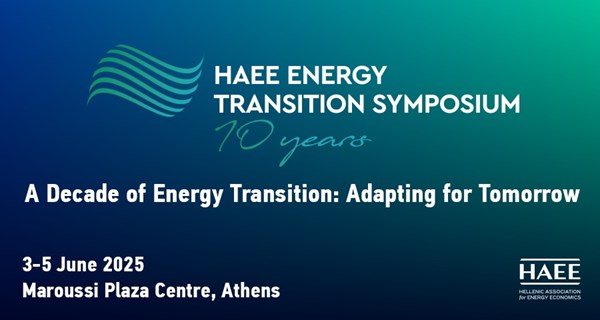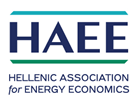The 10th HAEE Energy Transition Symposium has drawn to a successful close, bringing together thought leaders, policymakers, innovators, and academics for three days of forward-looking discussion on the future of energy in Greece, Europe, and beyond. Celebrating a decade of progress, the 2025 Symposium offered a timely reflection on how far the energy transition has come—and where it must go next. Held under the theme “A Decade of Energy Transition: Adapting for Tomorrow,” the event served not only as a platform for dialogue but as a launchpad for the next chapter of sustainable energy action. Day 1 – Setting the Tone for Transition The Symposium opened with welcoming remarks from HAEE President, Prof. Spiros Papaefthimiou and IAEE President, Edmar Fagundes de Almeida, setting the stage for high-level engagement. A standout conversation with Minister of Climate Crisis and Civil Protection, Mr. Ioannis Kefalogiannis, highlighted the need to embed civil protection into national energy planning—particularly in an age of rising climate extremes. The day continued with powerful keynotes from the ambassadors of China, the UK, the Netherlands, and France, each emphasizing the importance of global cooperation in achieving a net-zero future. Day 1 also featured the presentation of the Greek Energy Market Report 2025, co-developed by HAEE and the National Bank of Greece. This flagship publication, presented by Dr. Kostas Andriosopoulos, BoD Member, HAEE; Director, HELLENiQ ENERGY Center for Sustainability and Energy @Alba Graduate Business School; CEO, Akuo Energy Greece and Mr. Pavlos Mylonas, CEO of National Bank of Greece, offered a data-rich overview of Greece’s progress and investment outlook. Later in the program, the focus shifted to circular economy opportunities and renewable infrastructure challenges. Experts underscored the need for storage, smart grids, and societal acceptance. Discussions also addressed EU industry competitiveness and realistic fossil fuel phase-out paths. One of the most memorable highlights of the opening day was the Energy Initiative Awards ceremony—an inaugural event introduced to commemorate HAEE’s 10th anniversary. Nine awards were presented to groundbreaking initiatives and actions driving progress across key categories, each representing a vital pillar in the transition toward a decarbonized and inclusive energy future. With prominent members of the political leadership in attendance to honor the recipients, the evening served as a powerful reminder that the energy transition is as much about people and ideas as it is about policy and technology. Day 2 – Solutions, Markets & Innovation Deputy Minister of Environment and Energy, Mr. Nikos Tsafos, opened the second day with a focus on Greece’s energy market, EU engagement, and the future of hydrocarbon exploration. A prominent session on renewable integration addressed high curtailment levels, emphasizing economic causes and the potential of bilateral contracts, energy storage, and flexible management systems. Experts urged for system-wide reforms to balance supply and demand effectively. Day 2 took a more technical lens, diving into urgent challenges such as grids, RES curtailments, regulatory gaps, and the need for smarter infrastructure. In-depth discussions unpacked the role of storage, digital solutions, and bilateral contracts in making renewables more reliable and resilient. A forward-looking session on hydrogen and alternative fuels examined Greece’s readiness to tap into cleaner fuel systems, while a lively conversation on AI applications in energy explored how artificial intelligence is reshaping planning, investment, and operations. Day 3 – Island Decarbonization and Regional Synergies The final day zoomed out to explore the regional dimensions of the energy transition. A session on the decarbonization of Greek islands celebrated success stories from Crete and beyond, highlighting the role of local ecosystems in pioneering clean energy solutions. Romanian and Greek energy leaders took the stage to discuss cross-border investments and innovation, pointing to a growing sense of interconnected strategy in Southeast Europe. Academic presentations provided fresh insight into everything from life-cycle assessments to climate-neutral shipping, reaffirming their role as a core pillar of the Symposium—bridging research with real-world application and enriching the dialogue with evidence-based perspectives. Throughout the Symposium, one common thread was clear: the energy transition is no longer a distant goal—it is a live, evolving process that requires agility, ambition, and cooperation. As we reflect on a decade of energy dialogue, the 2025 edition proved that the conversations we have today are shaping the energy systems of tomorrow. We thank our participants, partners, and sponsors for making this milestone edition a remarkable success—and we look forward to continuing this journey together.
Special thanks to our Sponsors and Partners 
|



